by Marisela Perez Maita
On March 11, 2023, 55 finalists across 14 categories presented their innovative projects at the JW Marriott Downtown conference rooms. These categories included health, design, tech, audio and AI. Here are five of the numerous stands that were present:
Musichealth
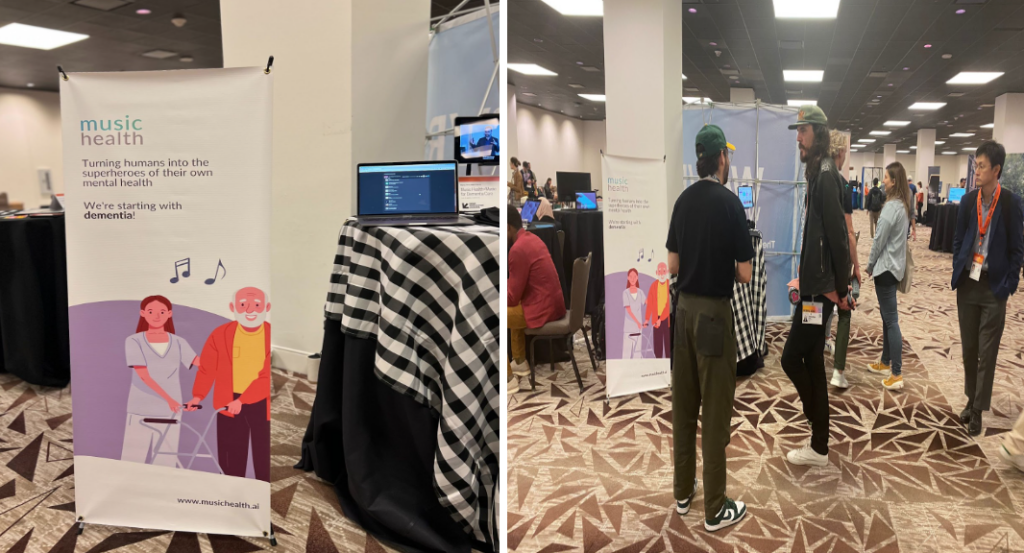
Musichealth is an AI that uses music therapy to help patients with dementia and their caregivers. The software —called Vera— creates a playlist that brings nostalgia and reminiscence of the patient’s past to their present. Once the patient starts listening to a song they enjoy and remember, their mood and behaviors change, relaxing the patient’s body and mind and making it much easier for caregivers to carry them through different activities. Combining neuroscience, technology and music, Musichealth helps dementia patients reconnect with emotions and caring memories
Edubank
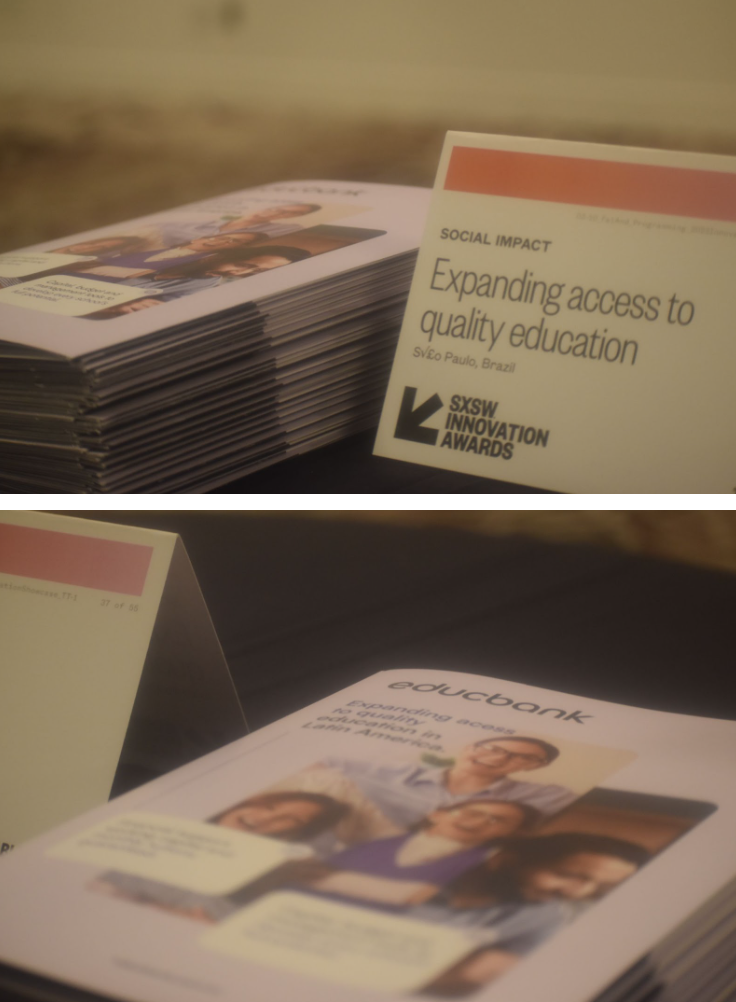
Founded in Brazil, Edubank is a bank that provides credits to schools in Latin America. The founder, Daniel Costa, started this project after realizing how the lack of financial support retains Brazilian schools for improvement. Traditional banks don’t like to give credit nor provide access to capital for education because “It’s too complicated” according to Costa. For this reason, institutions have a hard time finding resources to improve their facilities and quality of education. Edubank has helped over 400 schools in Brazilian states. They hope to reach 1 million students by 2026.
Chptr
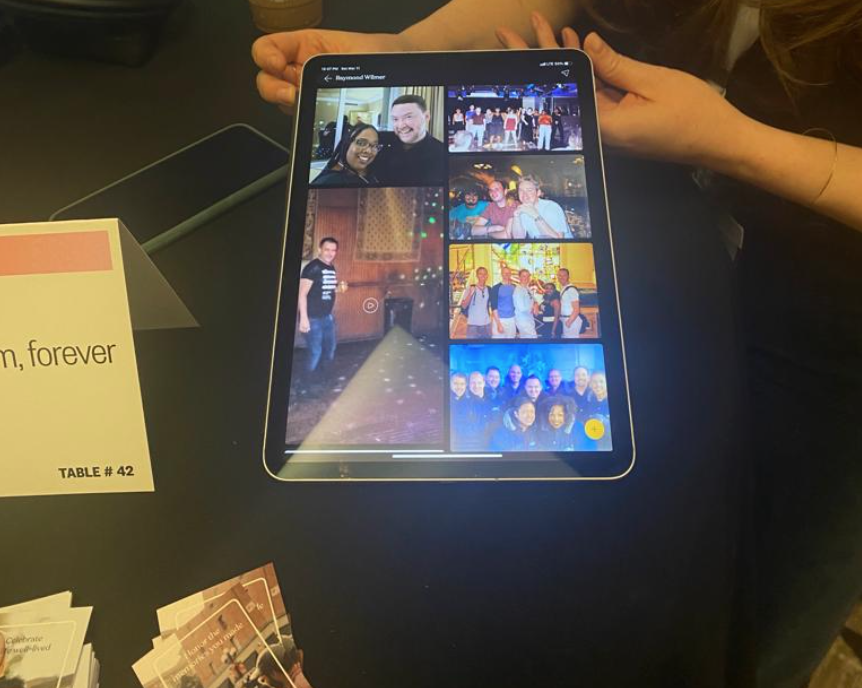
Chptr is an app for those who want to remember relatives and friends who have passed away. The way it works is very simple. People join a “profile” which is the space created for that person, and anyone invited to that profile can add a memory or a moment. A memory is either a video or audio where the user expresses their emotions or thoughts. A moment are pictures, videos, conversations or any media that shows how that person was for those who loved them. Chptr embraces memory, grief and love through the timeless space of technology.
The app is completely free and can be downloaded from the App Store or Play Store.
Neuralight
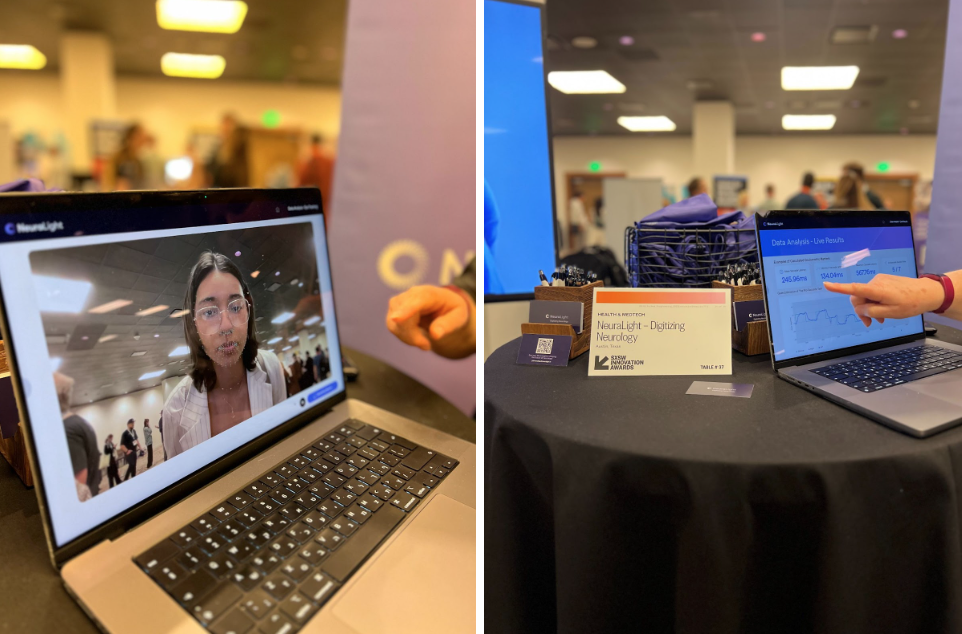
Neuralight is an AI that, by capturing oculometric movements, diagnoses neuronal disorders, measures sickness progression, and allows doctors to find the best treatment for the patient. Neuralight presenters pointed out that neurological disorders are usually diagnosed at an advanced stage of the disease, nd many of them share similar symptoms, so the risk of being misdiagnosed is high. Some of the most common are Parkinson’s Disease (PD), Alzheimer’s Disease (AD), Amyotrophic Lateral Sclerosis (ALS), Huntington’s Disease (HD), and Major Depressive Disorder (MD). Neuralight’s technology uses oculometric data to diagnose and predict these disorders accurately. Following a dot on a screen, gives information such as reaction time and many other complex neurological data that are useful for medical diagnosis.
Shrimpbox
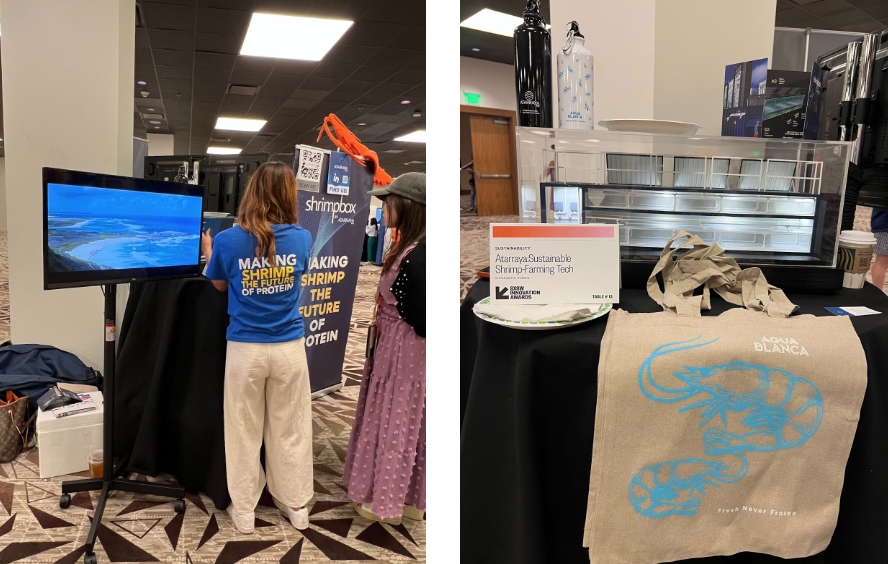
The company Atarraya presented Shrimpbox —the first AI-powered aquaculture farm designed to allow the production of shrimp sustainably. Traditional shrimp production pollutes oceans, destroys habitats, and contributes to overfishing. For this reason, Atarraya built the technology to cultivate shrimps in a “box” that replicates the breeding environment of the shrimps, be it in urban, hot or cold areas. The box can be built anywhere in the world, making it a sustainable farm that significantly decreases the environmental impact.
From the presented stands, Neuralight won in the category of Health and MedTech. The Finalists Showcase emboldens the importance of festivals like South by South West, where people with brilliant ideas get the opportunity to showcase their passions and innovations to others and inspire more ideas to come.

